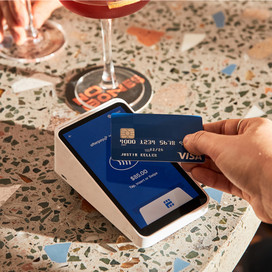Table of contents
Lenders like the feeling of security. When your business is built on giving money to those who wouldn’t otherwise have it, it makes sense that you’d want to guarantee that you will be paid back in one form or another.
This is the concept behind secured loans.
But then there’s the borrower’s side of the equation. If you’re looking for finance, the implication is that you may not have many assets, and you need access to cash to improve your financial position – you gotta spend money to make money, as the saying goes.
This is particularly applicable to the owners of newly established small businesses and start-ups – individuals who haven’t yet built up the necessary equity in a home or other asset will have limited borrowing options, making the task of starting or growing their business incredibly challenging.
Sure, there are many options for unsecured small business loans are out there, but these loans are often:
- Small: They aren’t as big as a borrower needs them to be.
- Expensive: They have high-interest rates and fees.
- Inaccessible: Application requires evidence of a strong financial history.
- Slow: The application process can take months.
- Unaffordable: The monthly repayments can be large.
As a small business owner you might feel as though you’re stuck between a rock and a hard place, where secured loans are inaccessible and unsecured loans are insufficient or inappropriate. But the concerns listed above don’t apply to all forms of secured and unsecured finance – if you know where to look and what to look for, you should be able to find the financial injection you need.
Let’s take a closer look at unsecured vs secured loans, and what a small business owner should consider before choosing which path to take.
What is a secured loan?
Secured loans are a form of finance that see you using your assets, whether property, inventory, equipment or accounts receivable, as collateral for your loan. If you are unable to pay the loan back and you default, your lender has claims to the assets you secured the loan with.
What is an unsecured loan?
Instead of using an asset to secure a loan, an unsecured loan represents a calculated risk for a lender, with the ‘security’ simply being an analysis of the strength of the borrower’s financial history and current situation.
What is the difference between secured and unsecured loans?
By definition, the difference between secured and unsecured loans is the need for security. If you want a secured loan, you need to be willing and able to put up some form of collateral. If you aren’t willing or able, you have the option of an unsecured loan.
The advantages and disadvantages of a secured loan
Advantages
- Secured loans tend to offer lower interest rates.
- Secured loans grant access to higher borrowing amounts.
Disadvantages
- Secured loans often involve a lengthy approval process, as the value of the collateral needs to be assessed, and documentation of those assets needs to be obtained.
- Should you default, the lender has claims to whatever collateral you offer up, whether property, vehicles or any other asset.
- Lacking the necessary assets, start-ups and other new businesses face a high rate of rejection.
The advantages and disadvantages of an unsecured loan
Advantages
- Unsecured small business loans can be approved comparatively quickly as less information and documentation is required.
- Borrowers are not required to put up collateral, increasing accessibility and reducing risk.
- They tend to feature smaller borrowing amounts making them a useful growth booster during the establishment phase of your business.
- Unsecured loans grant small businesses access to the finance they need to grow.
Disadvantages
- Unsecured loans represent a bigger risk for lenders, and tend to feature higher interest rates as a result.
- Unsecured loans are usually for smaller amounts, rarely exceeding $100,000.
How to get an unsecured loan
Getting an unsecured small business loan might be easier than you think. There are lenders across Australia offering unsecured loans to small businesses – you just need to find the right one for your business. It’s important to think outside the box as a business owner, and in terms of financing your operation, that means thinking beyond the big four banks!
Big banks tend to feature clunkier and more exhaustive approval processes. As the borrower you’ll need to prove that your business is growing, stable and profitable through audited financial statements (profit and loss, cash flow, transaction statements from business processing accounts.) Big banks generally take weeks, even months to process loan applications before finally providing the money. They have a standard approval procedure that stays much the same no matter whether you’re borrowing $5,000 or $5 million.
But there are ways to avoid the endless paperwork: by taking payment through a provider like Square, all the necessary information is automatically logged. FinTech tools can then proactively analyse sales data and determine if you qualify for a loan – no paperwork, no waiting, no worries!
This allows some FinTech lenders to provide loan approvals and payment not in weeks or months, but in as little as three business days. And depending on the urgency of your need, this quick turnaround could be the difference between the success and failure of your young business.
How much will a business loan cost?
One of the most important features of a traditional business loan, whether secured or unsecured, is the interest rate.
As mentioned above, secured loans will have lower interest rates than their unsecured counterparts, although you do have to put up your own assets as collateral to access these rates. An unsecured loan that features a higher interest rate can be made less costly by paying the loan off quickly, although this is only the case if there aren’t any early repayment fees.
Speaking of fees, these can be just as important and impactful as the interest rate. Some loans are fee-free, but others will feature a suite of fees that can greatly increase the true cost of the loan. In these cases the interest rate only tells part of the story. Be sure to get a complete rundown of all the fees you might face from your lender.
The most transparent small business loans are those that charge a flat fee. You’ll always know exactly what your repayments look like with these loans, no matter how long it takes to pay the money back.
How do loan repayments work?
Most small business loans feature a minimum amount that must be paid every month, and this amount can vary slightly as interest rates rise and fall over time.
This can be stressfull for small business owners who don’t yet have the most stable of incomes – interest rates could rise at any time, and if you don’t have the cash flow to make a repayment in a given month, you’ll be at risk of defaulting. And while choosing an unsecured loan will mean that you don’t lose your property in the process, you will damage your credit score, making it far more difficult to access funding in the future.
The problem? Most loans don’t factor in your cash flow. You need to make that minimum repayment no matter what might be happening within your own business, which, as we saw with the pandemic, can often be steered by uncontrollable outside forces.
Square Loans: Unsecured business loans based on cash flow
The good news: there’s another way to access the money you need to create the business you’ve always dreamt of!
Square Loans represent the future of unsecured lending. These loans have been designed to be repaid daily, in small amounts, based on the sales that you make. Rather than demanding a minimum repayment every month, Square Loans pay down your loan by deducting a small percentage from any payments taken through Square. Your repayments adapt to your situation: on busy days you pay more, on slow days you pay less.
What’s more, Square Loans feature no interest, no credit checks, and don’t require collateral for loans under $75K. There’s a single, simple and 100% transparent loan fee, which is gradually paid down as you make sales.
With Square Loans, unsecured loans for your new business venture are made accessible, fast, easy and perfectly affordable.
This article is only for educational purposes and does not constitute legal, financial or tax advice. Make sure you consult a professional regarding your unique business needs.
![]()











